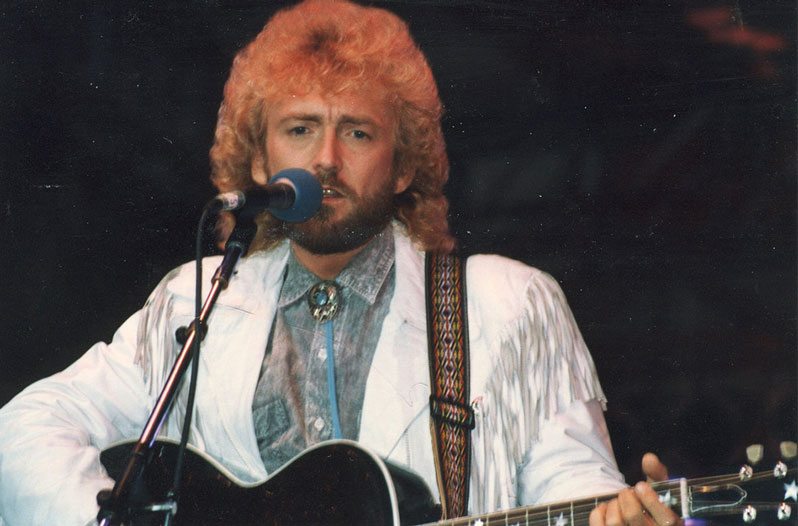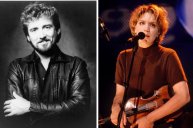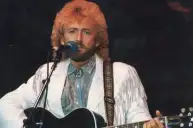An amazing thing happened in 1995. Mike Cromwell, a production director at a radio station in Milwaukee, Wisconsin, heard the Alison Krauss version of "When You Say Nothing At All." That may not seem like much, but Krauss' recording of the country song came out of nowhere.
She and her band Union Station recorded the song for Keith Whitley: a Tribute Album in 1994. They didn't plan to promote the song, but some radio stations loved it so much they played it anyways. By the time Cromwell heard the tune, it had hit the airplay charts.
But Cromwell heard something special in the performance and decided actually to combine it with Whitley's original. He didn't do it for any commercial gain, and in fact, never made it available to purchase. But that hauntingly beautiful "duet" received airplay from coast to coast.
By the end of 1995, Alison Krauss owned a CMA Award for "Single of the Year" and one of her greatest hits to date.
A Tragic Hit
"When You Say Nothing At All" came to Whitley by way of songwriters Paul Overstreet and Don Schlitz. That dynamic duo penned some big hits in the day, including one that Whitley initially took a crack at but didn't see real success until Randy Travis recorded it (His breakthrough country hit, "On The Other Hand").
The pair actually banged their heads against the wall on the tune for a while. In fact, the song's hook kind of came out of the two not having much to say, either. But the idea of saying it best when you don't say anything struck them immediately.
With Whitley's unforgettable delivery, the song found the perfect home. He took it to the top of the chart in three short months as the follow-up single to "Don't Close Your Eyes," solidifying himself as anything but a one-hit wonder. Tragically, he would only enjoy the success for five months before succumbing to alcohol poisoning in May 1989.
Here he is performing the song on Austin City Limits after it hit the Top 10 of the Billboard Hot Country Singles chart for the first time.
Read More: 'I'm No Stranger to The Rain' and Nine Other Keith Whitley Classics
A Legendary Song No Matter Who Sings It
Perhaps the biggest testament to this love song, besides its simplicity and Whitley vouching for it, is its undeniable presence in the music world. As mentioned, Krauss' version rose to amazing success in spite of almost no publicity and the song's relatively recent success prior.
Conventional wisdom says a hit song that went to No. 1 probably wouldn't get a reboot a few short years later. But it seems every time we're reminded of the song; we love it again. Irish artist Ronan Keating released the song as a single four years after Krauss' success in 1999. Spoiler alert: it went to No. 1 in the United Kingdom, Ireland and New Zealand.
Heck, sales of Keith Whitley's version of the song spiked again as recently as 2015. After Sara Evans delivered its immortal lines ( "A touch of your hand says you'll catch me if ever I fall") on a TV special, the song hit nearly 600,000 digital downloads in one week. The song grips you in such a way that you pretty much never get tired of it.
https://www.youtube.com/watch?v=xKKotTwttP4
Perhaps that's why CMT ranked it No. 12 on the list of the 100 Greatest Love Songs. Whatever the case, "When You Say Nothing At All" really proves the point that a good song is a good song no matter who sings it. Of course, it doesn't hurt when the likes of Whitley, Krauss and Evans perform it.
It's truly timeless, and a fantastic way to remember a singer who left us too soon.
This post was originally published on November 10, 2016.




